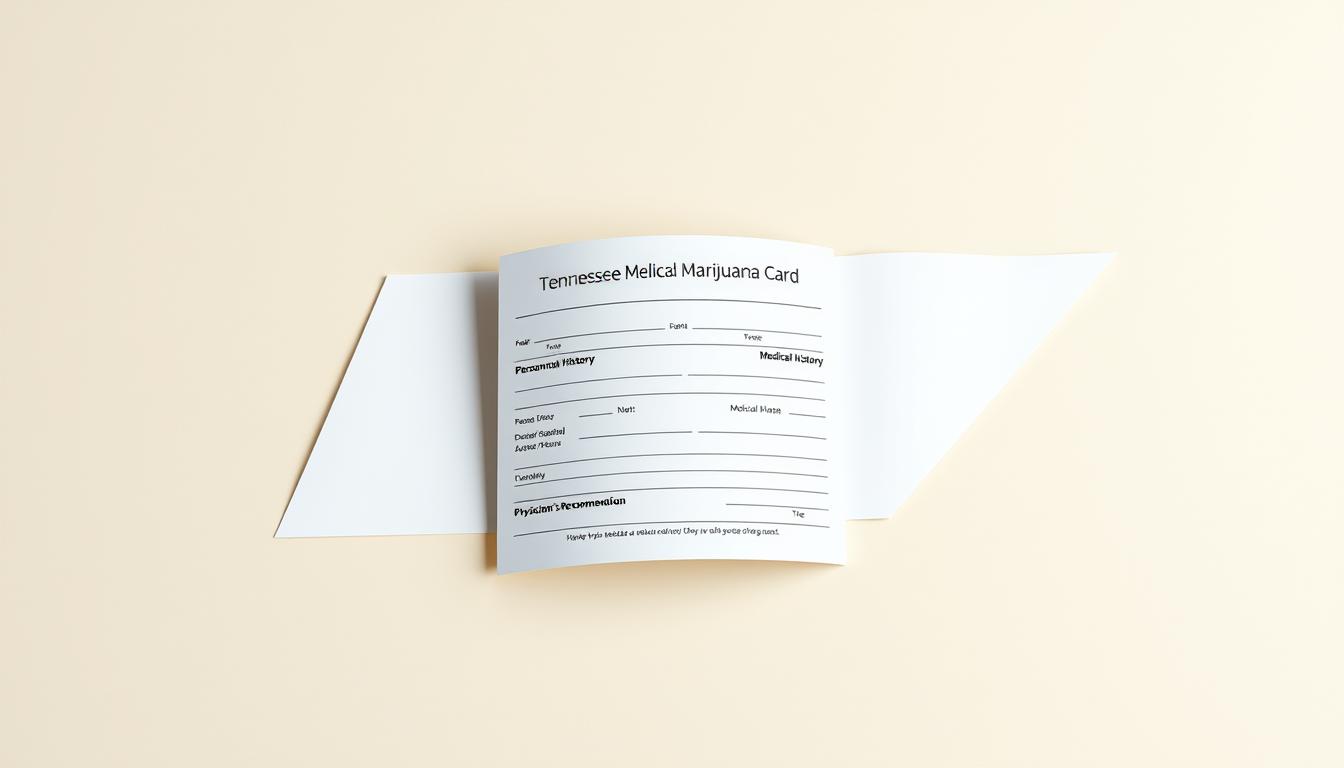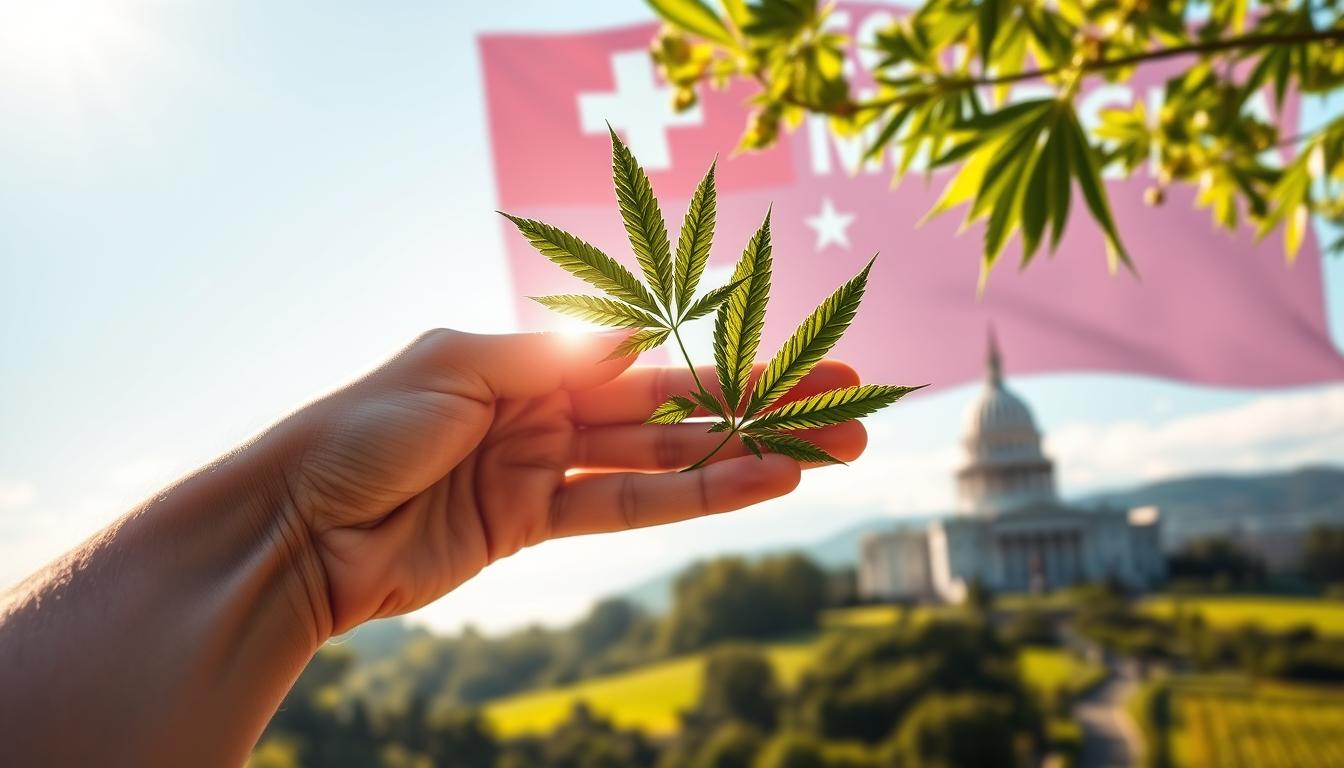Does THCA get you high?. The cannabis landscape is rapidly evolving, with compounds like THCA, or tetrahydrocannabinolic acid, gaining significant attention. This compound is at the center of a heated debate regarding its potential to induce psychoactive effects.
As the popularity of cannabis products grows, understanding THCA becomes crucial. Some argue that it does not elicit a high feeling, while others propose that it can under specific conditions. We aim to dissect the available information on THCA and its potential effects.
An examination of the scientific literature and empirical evidence is essential. This will enable us to determine if THCA can induce a high and its implications for the U.S. populace.
Understanding THCA and Its Effects
THCA, or tetrahydrocannabinolic acid, is a compound inherent in cannabis, drawing interest for its potential health benefits. Unlike THC, THCA does not elicit psychoactive effects due to its non-psychoactive nature.
What Is THCA?
THCA serves as a precursor to THC, the psychoactive component of cannabis. Raw, uncured cannabis plants contain higher levels of THCA than THC. THCA is non-psychoactive, thus not causing the high associated with THC. Research is underway to explore its health benefits.
How Does THCA Differ from THC?
THCA and THC exhibit distinct chemical structures and effects. THC is psychoactive, whereas THCA is not. The presence of an additional carboxyl group in THCA prevents it from acting like THC in the body. Heat conversion transforms THCA into THC.
- THCA is non-psychoactive, whereas THC is psychoactive.
- The chemical structure of THCA includes an extra carboxyl group.
- Decarboxylation converts THCA into THC.
Potential Benefits of THCA
Research into THCA is in its nascent stages, yet preliminary findings are encouraging. Potential benefits include:
- Anti-inflammatory properties: THCA may reduce inflammation.
- Neuroprotective effects: It could protect against neurodegenerative diseases.
- Anti-emetic properties: THCA might help with nausea and vomiting.
These preliminary findings underscore the intriguing potential of THCA in cannabis research.
The Science Behind THCA
The science surrounding THCA is intricate, involving its chemical composition and interaction with our bodies. To fully comprehend THCA, we must examine its structure and its effects on us.
The Chemical Structure of THCA
THCA, or tetrahydrocannabinolic acid, is found in raw cannabis plants. It is not psychoactive like THC. This is due to an additional carboxyl group in its structure.
Its molecular formula is C22H30O4. Understanding this helps us understand how THCA interacts with our bodies. This knowledge is vital for THCA research.
How THCA Interacts with the Body
THCA interacts with our body’s endocannabinoid system (ECS). This system regulates various bodily functions. THCA does not bind to CB1 receptors like THC does. Yet, it might influence other parts of the ECS.
- Potential anti-inflammatory properties
- Possible neuroprotective effects
- Potential therapeutic applications in treating conditions such as epilepsy and arthritis
The THCA interaction with the ECS is being studied. Researchers aim to understand how it benefits us. By learning this, they can discover more ways THCA can aid us.
The Legal Landscape for THCA Products
Understanding the laws surrounding THCA products is complex. It involves both federal and state regulations. The debate on their legality is ongoing due to evolving cannabis laws.
In the U.S., federal laws establish the foundation. States can either adhere to or expand upon these laws. This knowledge aids in comprehending the legality of THCA products.
Current Laws Surrounding THCA in the U.S.
At the federal level, the legality of THCA products is tied to the THCA legal status. THCA, a non-psychoactive cannabis compound, is legal if derived from hemp. The 2018 Farm Bill made hemp and its derivatives, like THCA, legal.
Key points to consider:
- The 2018 Farm Bill legalized hemp and its derivatives.
- THCA from hemp is legal under federal law.
- State laws on THCA and cannabis vary a lot.
State-Specific Regulations
State laws on THCA can be stricter or more lenient than federal laws. In Florida, laws from 2014 and 2016 have shaped medical marijuana rules. This includes products with THCA.
The Office of Medical Marijuana Use (OMMU) oversees medical marijuana in Florida. It ensures products, including THCA ones, follow state rules.
Key aspects of Florida’s regulations include:
- Medical marijuana is regulated by the OMMU.
- THCA products are treated the same as other medical marijuana.
- Users must follow state rules for buying and using.
In conclusion, the laws for THCA products are complex and differ by state. It’s important for both consumers and businesses to understand federal and state laws. This helps them navigate the changing legal landscape.
The Difference Between THCA and THC
THCA and THC are key to the cannabis experience. THCA (Tetrahydrocannabinolic Acid) is found in raw cannabis and isn’t psychoactive. On the other hand, THC (Tetrahydrocannabinol) is the psychoactive part that gives you a “high”.
Activation Process of THCA
When cannabis is heated, dried, or aged, THCA turns into THC. This change happens through decarboxylation. It’s important because it affects how psychoactive cannabis products are.
Effects of THC High
THC, once formed, can cause various effects. These include feeling happy, relaxed, seeing things differently, and getting hungry. The effects can change based on THC levels, how much you’re used to, and how you use it.
THC works by binding to CB1 receptors in the brain and nervous system. Knowing how THC affects you is key for both new and regular users.
Consuming THCA: Methods and Products
THCA is gaining popularity, and knowing how to use it is key. There’s a wide range of products available. This section will look at the different ways to consume THCA.
Common THCA Products Available
The market has a variety of THCA products. They cater to different tastes. Here are some common ones:
- Raw Cannabis Juices: These juices come from fresh cannabis leaves. They are a favorite for getting THCA in its raw form.
- THCA-rich Tinctures: These are liquid extracts with lots of THCA. They are concentrated.
- Capsules and Supplements: For those who like traditional methods, THCA is in capsule form.
- Topicals: Creams, balms, and salves with THCA are used for local relief.
Consumption Methods: Raw vs. Decarboxylated
There are two main ways to use THCA: raw and decarboxylated. Knowing the difference is important for the THCA effects you want.
Raw Consumption: Using THCA in its raw form keeps its natural benefits. Raw cannabis juice is a favorite for this reason.
Decarboxylated Consumption: Decarboxylation changes THCA into THC with heat. This method changes the effects, as THC is psychoactive.
Choosing between raw and decarboxylated depends on what you want. For the THCA benefits without the high, raw is best.
Common Misconceptions About THCA
Many individuals mistakenly believe that THCA can induce a psychoactive state, akin to THC. This misconception stems from a lack of understanding regarding the distinct properties of THCA and THC. It is crucial to differentiate between these two compounds.
THCA, or tetrahydrocannabinolic acid, is a component found in raw cannabis. It represents the acid form of THC, which is renowned for its psychoactive properties.
Debunking Myths About THCA Getting You High
One prevalent myth is that THCA can induce a high similar to THC. This assertion is incorrect. THCA lacks psychoactive properties and does not elicit euphoria akin to THC.
The chemical structure of THCA differs significantly from THC. It requires heat to transform into THC. Without this transformation, THCA does not interact with brain receptors in the same manner as THC.
Clarifying Popular Misunderstandings
Some individuals believe that THCA offers no benefits due to its non-psychoactive nature. Research, on the other hand, indicates that it possesses anti-inflammatory and neuroprotective properties.
Consuming raw cannabis or products rich in THCA can provide these benefits without the psychoactive effects. This makes THCA an attractive option for those seeking the health benefits of cannabis without the psychoactive consequences.
Key benefits of THCA include:
- Potential anti-inflammatory effects
- Neuroprotective properties
- Non-psychoactive, making it suitable for those who want to avoid THC’s effects
Understanding the true nature of THCA empowers individuals to make more informed decisions regarding cannabis use.
The Role of THCA in Medical Marijuana
Medical marijuana contains THCA, a non-psychoactive compound with promising therapeutic applications. As research progresses, its role in medical marijuana is becoming increasingly evident.
THCA, or tetrahydrocannabinolic acid, is a component found in raw cannabis plants. It does not cause a “high” like THC, making it suitable for those seeking relief without the psychoactive effects.
Potential Therapeutic Uses of THCA
Research suggests that THCA could be beneficial for inflammation, brain protection, and nausea reduction. It may assist individuals with arthritis, neurodegenerative diseases, and chemotherapy-induced nausea.
Anti-inflammatory properties of THCA could lessen pain and swelling in inflammatory diseases. Its neuroprotective effects might slow neurodegenerative diseases, such as Parkinson’s and Alzheimer’s.
How Medical Users Benefit from THCA
Medical users benefit from THCA in various ways. They can consume raw cannabis or products designed to preserve THCA levels. This approach allows them to experience symptom relief without the psychoactive effects of THC.
- Relief from inflammation and pain
- Neuroprotection
- Reduced nausea and vomiting
As THCA research continues to advance, we can expect to see more treatments. The benefits of THCA in medical marijuana are vast, and ongoing studies will likely reveal additional uses for this non-psychoactive cannabinoid.
The Future of THCA in the Cannabis Industry
THCA is gaining significant attention in the cannabis industry. Growing interest in cannabis and its components is driving more research and the development of new products.
Trends in THCA Research and Development
Research and development are crucial for unlocking THCA’s full potential. Scientists are exploring its health benefits, including anti-inflammatory and neuroprotective effects. As studies expand, we can anticipate the emergence of innovative products.
Research is now focused on how THCA can help with health issues. This includes treating chronic pain and inflammation. Further research will lead to the creation of new THCA products.
The Growing Popularity of THCA Products
Increasing numbers of individuals are gravitating towards THCA products, perceiving them as beneficial for health. As THCA legality becomes more defined, demand escalates, fueling market expansion.
Public awareness regarding THCA’s potential benefits is on the rise. This heightened understanding prompts a desire for products enriched with THCA. Enterprises are now crafting a diverse array of THCA-infused items, spanning from juices and tinctures to creams.
- Raw cannabis juices
- THCA-rich tinctures
- Topicals containing THCA
How to Legally Purchase THCA Products in Florida
To legally procure THCA products in Florida, one must acquaint themselves with the state’s regulatory framework. It is imperative to grasp the legal requisites and identify approved dispensaries.
Medical vs. Recreational Purchases
In Florida, THCA products are exclusively accessible through the medical marijuana program. To legally acquire them, one must possess a qualifying medical condition. A doctor’s endorsement and a patient card from the Office of Medical Marijuana Use (OMMU) are also obligatory.
It is crucial to differentiate between medical and recreational purchases. Recreational marijuana remains prohibited in Florida. Thus, the medical program stands as the sole legal conduit for obtaining THCA products.
Where to Find THCA Products in Florida
With a valid patient card, one can purchase THCA products from licensed dispensaries in Florida. These establishments adhere to the state’s regulatory stipulations.
Some licensed dispensaries in Florida include:
- Trulieve
- Curaleaf
- Surterra Wellness
- Ascend Wellness
For further information on Florida’s marijuana laws and to locate dispensaries, visit this resource.
When acquiring THCA products, it is essential to verify lab tests and certifications. This ensures the product’s quality and conformity with state standards.
By adhering to these guidelines and understanding the regulatory framework, one can legally acquire THCA products in Florida for medical purposes.
Conclusion: Understanding THCA’s Effects
Many individuals query whether THCA induces a high. The response hinges on its properties and comparison to THC. Raw THCA lacks the psychoactive effects characteristic of THC.
Key Takeaways
THCA is a non-psychoactive compound inherent in raw cannabis plants. It offers therapeutic benefits without the psychoactive effects THC elicits. The transformation of THCA into THC is pivotal to its psychoactive properties.
THCA in Your Cannabis Experience
Understanding THCA can enhance one’s cannabis experience. Whether for medical or recreational purposes, grasping the nuances of THCA is crucial. As research continues to elucidate THCA’s properties, its popularity is likely to surge.


